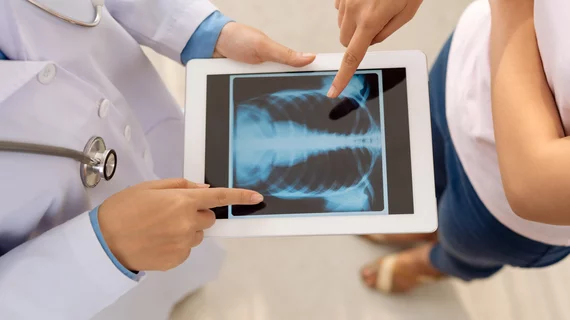Radiology consultation service bolsters department’s value amid COVID-19 shutdowns
One New York provider saw interest in its radiology consultation service leap during the pandemic at a time when other offerings dropped dramatically. Leaders believe the service is bolstering the department’s value and are urging others to explore this new way of doing business.
Weill Cornell Medicine first added consultations in 2013 as a way to explain the radiological significance of breast density, along with discussing supplemental screening options with patients. It’s proven pivotal to the practice since, helping educate patients, boost satisfaction, and improve their understanding of the radiologist’s role, experts wrote Tuesday in Clinical Imaging.
WiCares has only grown in popularity during the pandemic, with consultations leaping 16% between March and June of 2020 compared to the same time in 2019. Roughly 37% of those discussions centered around coronavirus concerns, the department found through a recent analysis.
“At a time when radiology experienced an unprecedented decrease in imaging studies during the initial peak of the COVID-19 crisis, the [radiology consultation service] at our institution, in contrast, showed a notable increase in services provided, evolving to address pressing concerns related to COVID-19 and breast imaging,” Melissa Reichman, MD, an attending radiologist at New York Presbyterian-Weill Cornell Medical Center, and colleagues wrote July 6. “Our experience demonstrates the value of an organized radiology consultation service and may serve as an example for other institutions to adopt a similar program, as patient-centered care is at the forefront of radiology,” they added.
For their study, Reichman et al. examined data from WiCares—short for Weill Cornell Imaging Consultation and Radiologic Expertise Service—logged between Jan. 1, 2019, and Sept. 1, 2020. Consultations are typically performed by a registered radiologist assistant, nurse and one of 17 breast imaging specialists. It’s meant to mirror goals from the American College of Radiology’s Imaging 3.0 initiative, the authors noted, sharing decision-making and helping patients select the most appropriate examination.
During the first seven months of 2020, Weill Cornell logged 1,623 consultations, a 16% uptick compared to the same period in 2019. And in the first four months of the pandemic between March and June, the provider logged 679 such visits, a 16.5% increase. More than one-third (36.8% or 350) of encounters during that period were related to COVID-19. Plus, about 69% of calls coming into WiCares were related to the novel virus. Conversations covered topics including whether an exam was urgent (70%), concerns about postponing imaging (28%), a patient seeking outside care (2%), or a no-show due to COVID (0.4%).
“Our [radiology consultation service] enables high quality communication with patients and referring clinicians, before and during the COVID-19 pandemic, the latter of which has been a time of much panic and confusion,” Reichman and colleagues noted. “The proof of efficacy was in the continually increasing utilization, with the RCS able to utilize its resources to help direct patients regarding answering questions about the urgency of exams and beyond. While there is no direct financial gain to the institution, RCS improves the experience of patients and referring physicians, and differentiates our institution in terms of quality of care.”
Read more about their findings in the New York Roentgen Society’s official journal here.

